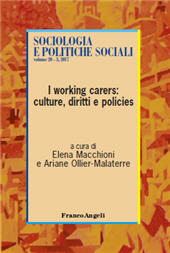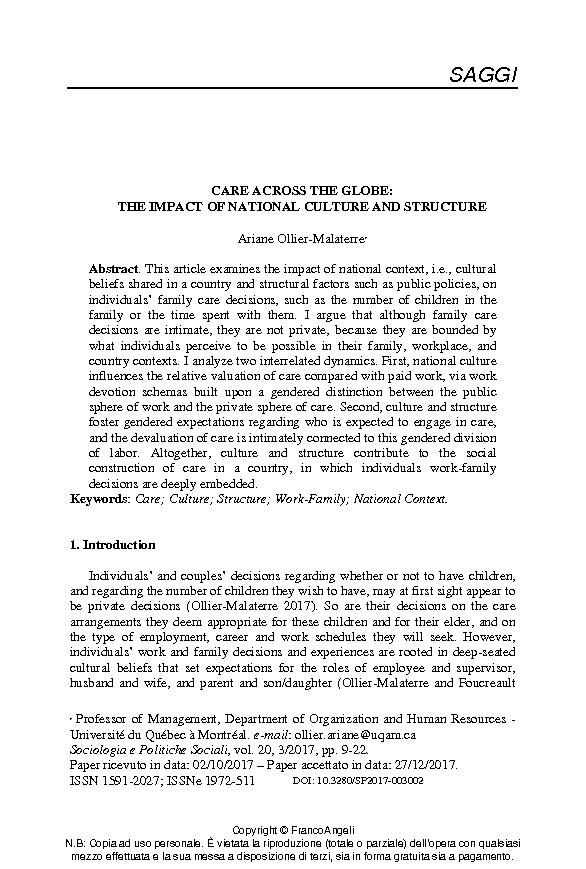Care across the globe : the impact of national culture and structure
9-22 p.
This article examines the impact of national context, i.e., cultural beliefs shared in a country and structural factors such as public policies, on individuals' family care decisions, such as the number of children in the family or the time spent with them. I argue that although family care decisions are intimate, they are not private, because they are bounded by what individuals perceive to be possible in their family, workplace, and country contexts. I analyze two interrelated dynamics. First, national culture influences the relative valuation of care compared with paid work, via work devotion schemas built upon a gendered distinction between the public sphere of work and the private sphere of care. Second, culture and structure foster gendered expectations regarding who is expected to engage in care, and the devaluation of care is intimately connected to this gendered division of labor.
Altogether, culture and structure contribute to the social construction of care in a country, in which individuals work-family decisions are deeply embedded. [Publishers' text].
Forma parte de
Sociologia e politiche sociali : 3, 2017-
Artículos del mismo número (disponibles individualmente)
-
Información
Código DOI: 10.3280/SP2017-003002
ISSN: 1972-5116
KEYWORDS
- Care, Culture, Structure, Work-Family, National Context



